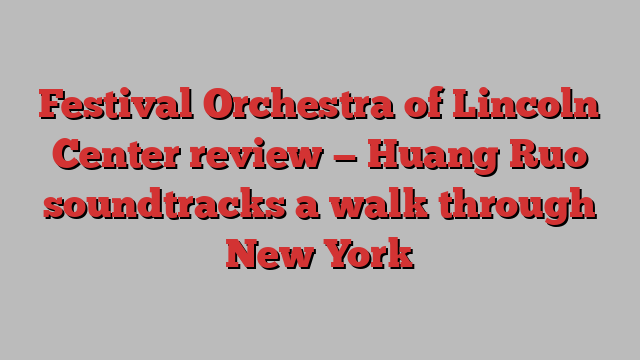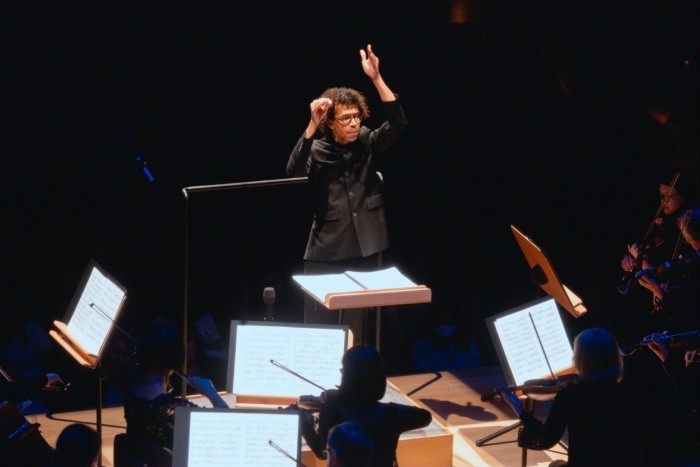
Unlock the Editor’s Digest for free
Roula Khalaf, Editor of the FT, selects her favourite stories in this weekly newsletter.
A year ago, Lincoln Center in New York put an end to the Mostly Mozart festival and conductor Louis Langrée’s tenure. There were promises that changes would come and, despite a warning from Langrée, that there would still be classical music on campus in the summer.
Classical music is indeed back as part of the Summer for the City festival: that hasn’t changed, nor has much of anything. The Mostly Mozart Festival Orchestra ensemble is now the Festival Orchestra of Lincoln Center, described by the marketing materials and new music director Jonathon Heyward himself as “exactly the same orchestra”. The programming style is as it has been for well over a decade, some new and modern music complementing core repertoire — the July 23 opening night had the North American premiere of Huang Ruo’s City of Floating Sounds and Beethoven’s Symphony No 6 — with an incremental shift away from the classical period and towards the Romantic. Outside of the new works, unexpected repertoire includes Ginastera’s Variaciones concertantes (1953).
The most unusual, at least for Lincoln Center, is likely Ruo’s work. It has two versions, so opening night had two performances. The first was in the form of a sound walk, with groups gathered at various locations in Manhattan using a smartphone app that played one of 12 tracks out loud in tandem with your fellow walkers and their own 12ths to produce the whole work. From Grand Army Plaza, one group of more than a dozen took a 40-minute stroll through Central Park to Lincoln Center, creating and surrounded by a bubble of sound.
This was a marvellous experience, the gradual swell of Ruo’s cycling fanfares a lovely accompaniment to the park and skyline around it. The musical counterpoint changed with the steps of each walker, and there was a feeling of not just listening but being part of the performance, active listening and music-making together.
What worked while walking failed while sitting. Heyward spoke of the idea of landscape in the concert, Ruo’s urban and Beethoven’s rural, but as a concert piece in David Geffen Hall City of Floating Sounds had no pictorial or narrative qualities, no landscape and a skimpy structure despite its length.

At a rehearsal, Heyward told the orchestra he wanted “the most organised and metronomically secure” performance of Beethoven’s “Pastoral” symphony, and the orchestra delivered that, and more. This was as well-formed, thrilling and glorious as one has heard this masterpiece.
This is an excellent group, crisp, supple and colourful, those qualities prominent in the chamber orchestra size the conductor chose for this performance. Unerring tempos and excellent judgment — the second movement was close to allegretto and terrific for it — supported precise and expressive articulation and phrasing, superb dynamics and a pulse one felt in the body.
With a leaner string section, beautiful woodwind playing came to the fore. Their first movement harmonies were exquisitely tuned, and Heyward let the flute and clarinet linger in their second-movement bird calls. The storm was slicing, the air crackling with tension, agile low strings leading the way. All the way through to the end the performance told Beethoven’s story.
★★★★☆
The Summer for the City festival continues until August 10, lincolncenter.org